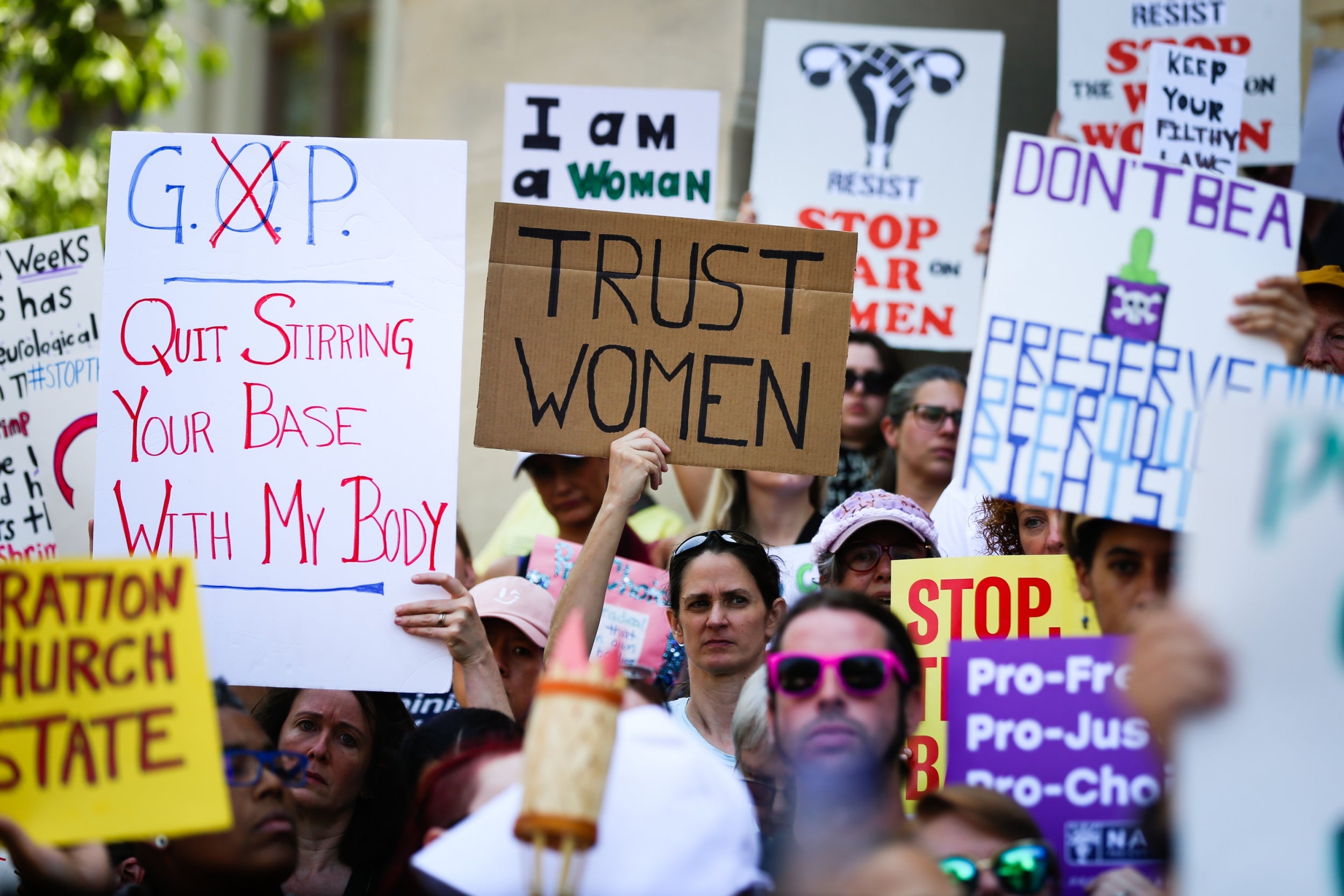Alabama abortion law: Federal judge blocks near-total ban on terminations
Doctors who terminate pregnancies could be sentenced to up to 99 years in prison under the law

A federal judge has blocked an Alabama law that could punish abortion providers with a prison sentence of at least 10 years.
US District Judge Myron Thompson issued a preliminary injunction against the law, which would have made it virtually impossible to terminate a pregnancy in the state.
Alabama politicians approved the measure earlier this year, joining several states' efforts to pass similarly strict legislation aimed at challenging abortion laws at the US Supreme Court.
The law would create a near-total ban on abortions by making it a felony for doctors to perform them. It only allowed for abortions to be performed if the pregnancy posed a "serious" risk to a woman's health. It does not make exceptions for pregnancies that resulted from rape or incest.
The American Civil Liberties Union of Alabama and Planned Parenthood Federation of Alabama joined the lawsuit challenging the law. It was set to go into effect next month.
Alabama is among a dozen states attempting near-total bans on terminating pregnancies through state legislation that Republicans hope will be challenged by the high court, now comprised of a conservative majority seemingly primed to overturn the landmark 1973 decision in Roe v Wade, which affirms a woman's access to abortion without government interference.
But judges in lower courts across the US have denied those states' attempts by blocking their implementation.
The Supreme Court has agreed to review a Louisiana law that requires doctors to have admitting privileges to nearby hospitals, which severely limits access to abortions.
Louisiana and several other states have also authored so-called "heartbeat" bills that ban the procedure when a flicker of embryonic cardiac activity is detected, which can be discovered as early as six weeks into a pregnancy.
In May, a federal judge blocked a similar Mississippi law. Last month, a federal judge blocked another "heartbeat" bill in Georgia.
In his ruling, US District Court Judge Steve C Jones said that “under no circumstances whatsoever may a state prohibit or ban abortions at any point prior to viability."
In July, a federal judge blocked three anti-abortion measures from going into effect in Arkansas.
Following the Alabama decision, the ACLU told politicians to "listen closely".

"We have a constitutional right to abortion", the group said in a statement. "If you try to ban it, we will see you in court."
Join our commenting forum
Join thought-provoking conversations, follow other Independent readers and see their replies
Comments
Bookmark popover
Removed from bookmarks